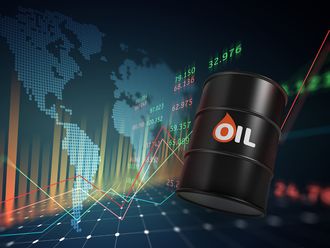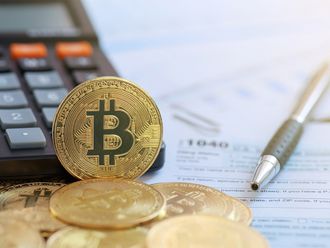With so much news going around, an interview that Mohammad Al Abbar, Emaar's chairman, gave recently on his new ventures in Africa and Asia passed quietly.
In short, he's building a mining business across Africa and an aluminium smelter in Asia. Al Abbar expects his mining venture, Africa Middle East Resources (AMER), to be worth $10 billion in three years' time. Even half that valuation would be impressive.
Al Abbar, whose chairmanship of Emaar is probably built into its stock valuation, was quick to deny that he was leaving it. But Emaar's stock today hovers at around $0.87 cents, down from its heyday of $3, valuing the company at $4.5 billion (Dh16.55 billion). That's a business that turns 15 next year. Sure, the stock is depressed due to the real estate crisis, but even if we average the valuation at $10 billion, one cannot help but question if running Emaar is everything Al Abbar can or even should do.
For too long, Dubai's model has been contemplated. Should its State Owned Enterprises (SOEs) continue to run the economy or should they be privatised? If they were to be privatised, would that be in favour of the larger economy? Would a purely entrepreneurial sector work towards the benefit of its economy? These questions are relevant not only to Dubai, but to the UAE and the six Gulf states as a whole.
In a 2008 conference held in Georgetown, Professor Jean-Francois Seznec who focuses on studying the Gulf economies pointed out that Gulf SOEs broke the rule that state run corporations would be inefficient — like their counterparts in Iran and Venezuela. He rightly cites Saudi Basic Industries (Sabic), Emaar and Emirates airline. Seznec believes the main reason is their autonomous operation and independence from government bureaucracy.
In Dubai, this model worked well with Dubal and Emirates and to a certain extent Emaar and the Dubai Internet and Media cities (DIC and DMC). Other ventures such as the Dubai Investment Group, Dubai International Capital, Istithmar and Nakheel didn't fare as well. The main reason is their respective dates of inception and turn-around periods.
Emirates and Dubal, found in 1979 and 1985 respectively, had strategic long-term visions but also the time to realise them.
Emaar, DIC and DMC, founded in the late 1990s, also had long-term visions and did have some time to realise them but were forced to respond to the exponential growth of international demand for Dubai by amending plans accordingly.
The last group of investment firms and Nakheel were really the thick of the storm in which Dubai's economic woes brewed.
So what does this all have to do with Al Abbar? A lot. The question for Dubai today is what's going to drive the growth now. Talk of trade and tourism is promising but far from enough. Dubai needs to capitalise on its location as a business centre that caters to countries as far as Africa and Central and South East Asia. Can Dubai Inc do this itself? And even if it could with stretched finances and human resources, should it? In many ways, Dubai Inc incubated Mohammad Al Abbar. If he really can build a $10 billion business headquartered in Dubai in three years with only 20 per cent of his time (he spends the other 80 per cent at Emaar), imagine what he could do with 100 per cent of it? Does this not signal a way forward for Dubai?
I think it does. The argument for SOEs works rather well when governments are bureaucratic and the private sector isn't willing or able to. But Dubai's government is, considering the region, quite efficient and the private sector could develop further outward looking ventures out of Dubai.
Government's role
The government's role is to remain a regulator and — when needed — an incubator. What Dubai did best it did when it had time to nurture and grow.
An important of the future of Dubai's economic model is to encourage and support the transformation of further government executives with entrepreneurial ambitions and private businessmen to grow businesses around the world while utilising Dubai's preeminent commercial advantages.
The era of diversified government behemoths that are involved in almost all sectors is no longer in Dubai's favour.
Returning to the role of facilitator, regulator and incubator is what Dubai does best; less Dubai Inc and more Dubai Gov. Of course, Dubai should retain ownership (or partial stakes) in strategic assets. And, despite all the fanfare of foreigners leaving Dubai, a discussion on a coordinated federal/state — or even considering the mood, a GCC wide — tax is overdue.
In a recent interview with Charlie Rose, Lee Kuan Yew, Singapore's moderniser, explained that, in the beginning, the government had to pursue state capitalism because Singapore's traders were not prepared to take the plunge with the government. He stressed that Singapore now had to transform to market capitalism.
So maybe having Al Abbar, and a few more Al Abbars, build a few more empires out of Dubai and IPO them on DFM isn't that bad… maybe even good for Dubai.
Mishaal Al Gergawi is an Emirati current affairs commentator.












